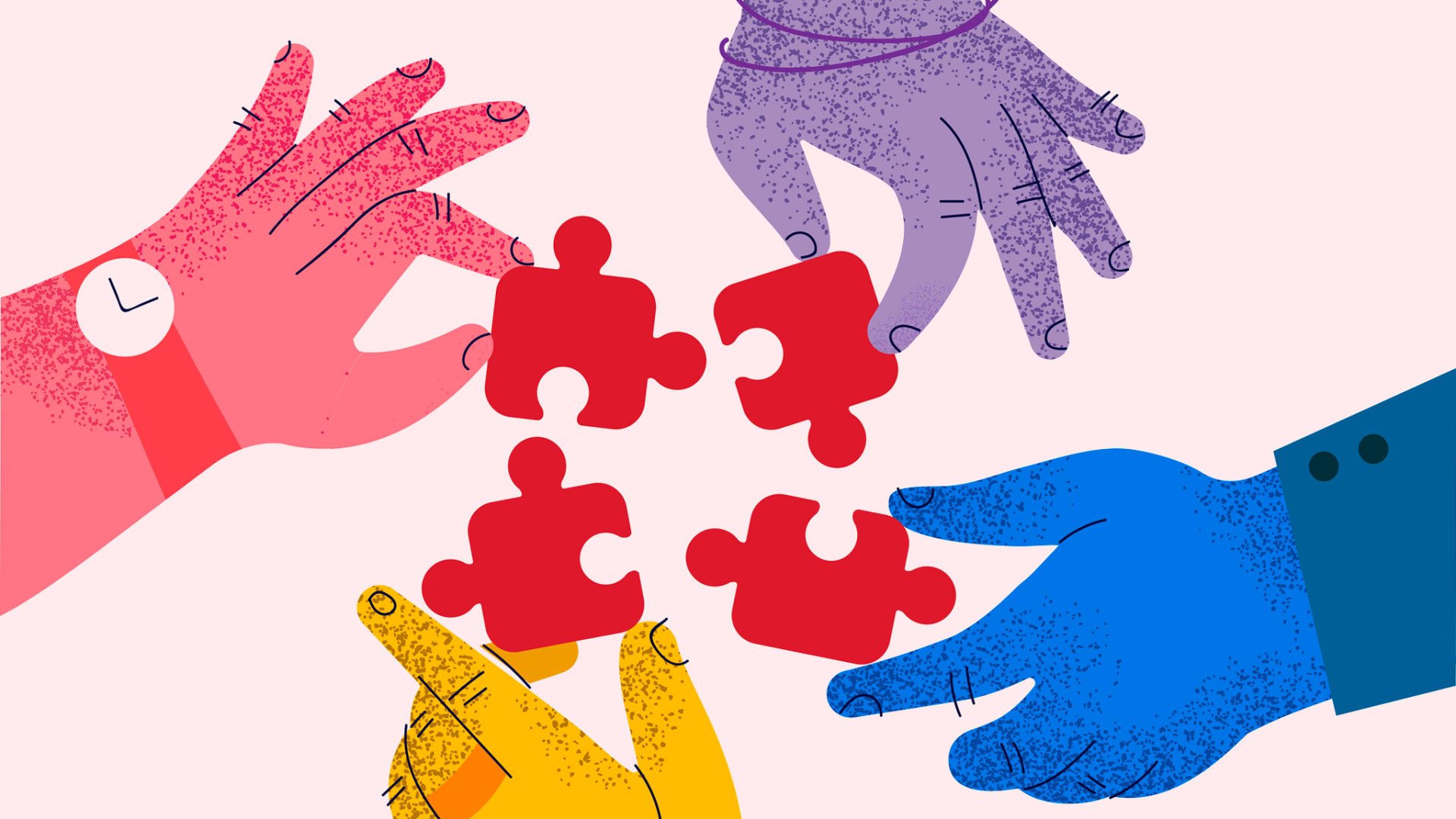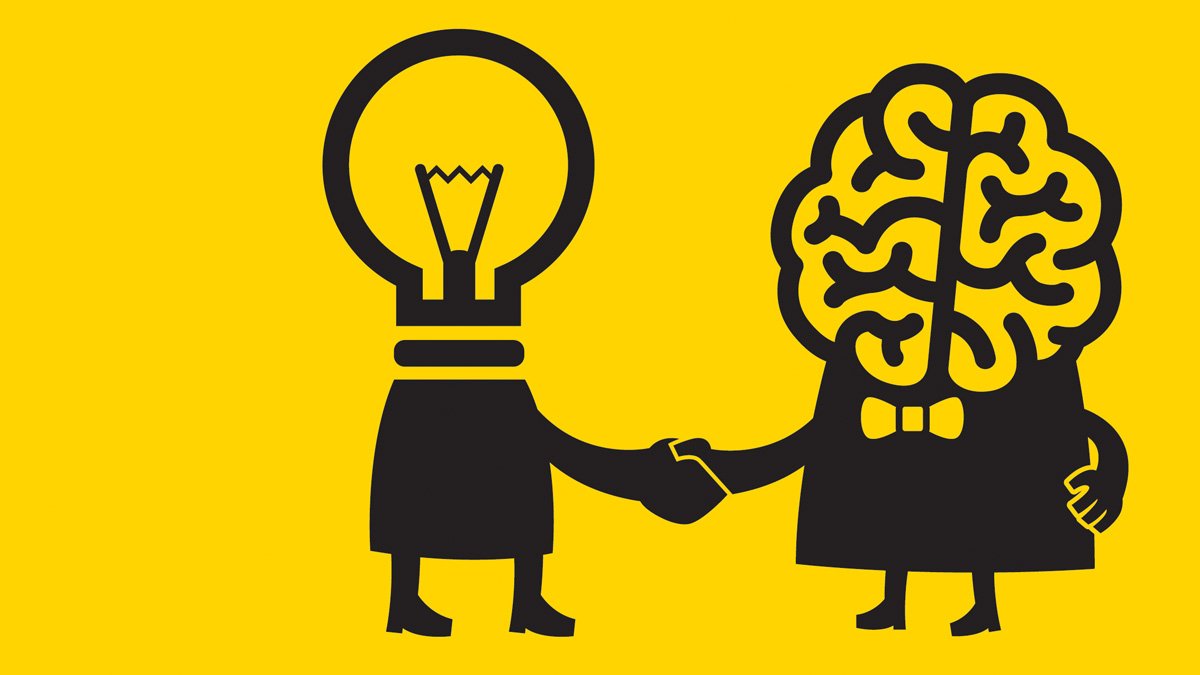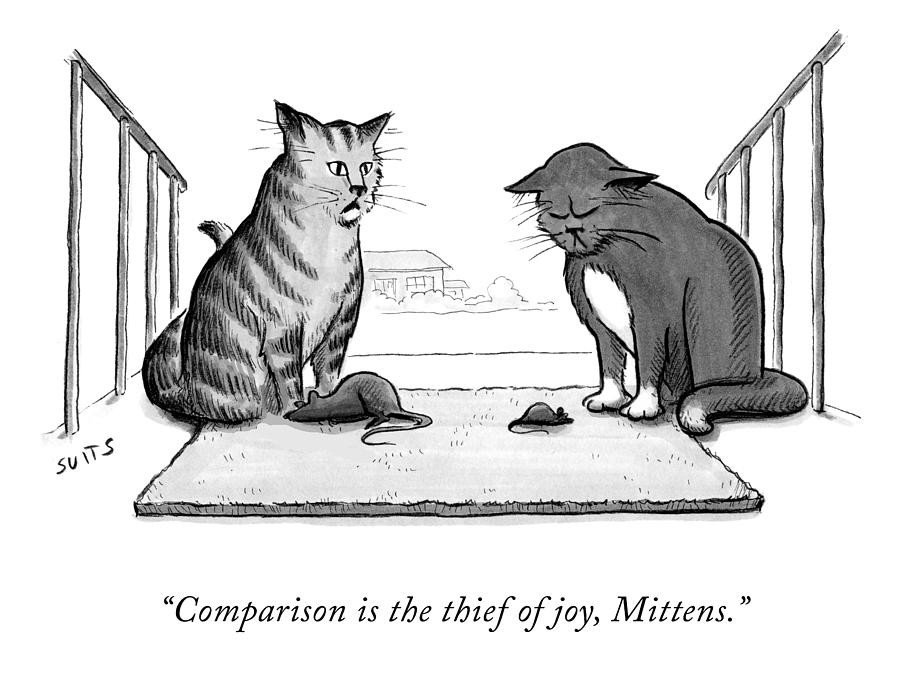Perception refers to our sensory experience of the world, in other words, perception is based on our viewpoint, experience, and behaviours from where we stand, and sometimes that isn’t always accurate. How we see things around us, no matter how they actually are, become what's real to us and our perception of reality is limited by our five senses; touch, sight, sound, smell, and taste. And it is through this experience that we gain information about the environment around us, and I think this shapes our beliefs and opinions.
Somebody's opinion
There will always be two types of people; those who become accustomed and accept the system, and those who will always fight for the truth. And my life experience has taught me is that truth is highly subjective. There may be an objective truth and we humans can't know it because we are condemned to the bias of our own experiences, biases, and preferences. As professional marketers we all believe that we make decisions rationally, but we are as likely as anyone to be influenced by external biases. And social proof has consistently been shown to be one of the most powerful behavioural biases.
“The ultimate measure of a man is not where he stands in moments of comfort and convenience, but where he stands at times of challenge and controversy. ”
The complexity of listening
Joseph DeVito in his book, “Essentials of Human Communication” divided the listening process into five stages: receiving, understanding, remembering, evaluating and feedback. I think by becoming aware of what is involved with active listening and where difficulties might lie, you can prepare yourself both as a listener and as a speaker to minimise listening errors with your own public speeches. Contact me via e-mail and let me know whether you are aware of the verbal and nonverbal ways of indicating your appreciation for or your disagreement with the messages or the speakers at the end of the message.
“Your style introduces you before you even speak.”
Risking your reputation
Many brands are built on a single belief that "claims" superiority in a crowded marketplace. Managing expectations is the practice of communicating information to prevent gaps between stakeholder perceptions and business realities. The theory of strategic narrative are tools that actors employ to promote their interests, values, and aspirations. Inaccurate stakeholder assumptions can result in failures and perceptions of failure. When working with brands I think strategic narratives should define "who we are" and "what kind of world order we want."
“You have to willingly give and graciously receive, and if you have to think before you give then you are trading.”
Just imagine
Why can’t we just train people to become curious and thirsty for knowledge? We can! And if we do this the number of other things, they can learn is unbelievable. We have seen that bit by bit on the internet there is a body of work that lets the employer know you’re worth hiring now. We are going see more and more free stuff and more and more expensive stuff. Just imagine if there was a portfolio system where you are hired and fired on the basis of your work. Just imagine if there is this type of relationship in place where people who know you and trust you also hire you. The education system of the future or should I say, the hiring of people in the future will look less like where you went to school and more and more what have you built, who did you work for and what would they say about you.
Don't say it
Leadership is about inspiring others to believe and enabling that belief to become reality. Inviting dissenting views and amplifying quiet voices are acts of leadership. The true leader in a group is rarely the person who talks the most, it's usually the person who listens best. Listening is more than hearing what’s said, and I think it’s also noticing and surfacing what isn’t said as communication doesn't only happen verbally.
Direction unknown
If you don’t know where you are going, how will you know when you get there?
Life is a mission, not career. A career is a profession and asks, “What’s in it for me?” On the other hand, a mission asks, “How can I make a difference?” I think that if you don’t create a vision of your own, someone else will do it for you – the media, your friends or someone else. And who knows if their interests are the same as yours? Therefore, unless you create your own vision of who and what you want to be, you will be quick to follow anyone who is willing to lead, even into things that won’t get you very far.
How to maintain a healthy lifestyle
It’s a common myth that getting fit is only about eating healthy and exercising. In reality, creating a healthy lifestyle and maintaining it is also about being able to keep a positive attitude, strong mental health and a healthy self-image. Here are some key factors to keep in mind:
Get more sleep
Find time to exercise
Drink more water
Eat less sugar
Do not respond to negativity
Write more
Remove clutter
Make your bed
Be patient
Listen more
Laugh loudly
Breathe deeply
Stay calm
Be honest
Providing performance solutions
Performance management is rooted in building an empowered and skilled workforce. When framing a performance issue, try asking yourself the following questions:
1. Is it a skill problem? (aptitude; training)
2. Is it a hill problem? (altitude; difficult task)
3. Is it a will problem? (attitude; motivation)
Get back to basics
c/o Harvard Business Review
This well-known Ancient Greek tale "The North Wind and the Sun” is my favourite Aesop’s fable.
“Long ago, the Wind and the Sun quarrelled over who was stronger. Upon seeing a traveller coming down the road, the Sun said: “Now we can end our dispute. Whomever of us can make that traveller take off his cloak shall be regarded as the victor. You begin.”
The Sun retired behind a cloud while the Wind blew, blustered, and raged upon the travelling man. But the harsher he blew, the tighter the man wrapped his coat. At last, exhausted, the Wind gave up in despair.
The Sun came out and shone in all her glory upon the traveller. Soon the man tipped his face up to the warmth. He removed his coat and basked in the Sun’s rays.”
There are many interpretations as to the meaning of the fable, I think Aesop’s fable basically says that if you want a man to take off his coat, you don’t blow it off. You make him feel warm, and he’ll take it off on his own. A metaphor is often used in framing a dispute or situation and you can use this fable as a metaphor for negotiation technique.
Rhetoric and the art of persuasion
Image c/o TED ED
When we have conflicting views over truth, we often enter into a game of persuasion where we try to convince the other that the belief we hold is, in fact, the true one. Rhetoric creates a partnership for a system of persuasion based on knowledge instead of upon manipulation and omission. Over 2,000 years ago the Greek philosopher Aristotle argued that there were three basic ways to persuade an audience of your position: ethos, logos, and pathos. To craft a good persuasive argument, we must consider these three things.
1. The character of the speaker (ethos)
2. The condition of the listener (logos)
3. The strength and plausibility of the argument itself (pathos)
Figuring out a way
Sometimes you have to take things out of your head and put it on paper. In order to come up with the solutions we really have to know what the problem is, and you cannot come up with good answers unless you know the whole problem. I think that if you ask the following questions you will be able to solve almost any problem:
What could I do?
What could I read?
Who could I ask?
Detachment yields objectivity
How come I can give valuable advice to others and not follow it myself?
You're probably aware of how easy it is to give good advice to others and how hard it is to know what to do about your own problems. One's ability to reason more sensibly about someone else's problems than one's own is known in psychology as Solomon's Paradox. I think people may show wisdom regarding others’ life problems while being stuck in their problems; Solomon’s sound general wisdom helped him deal with others’ life problems effectively, but he lacked the personal wisdom to live his own life well. The stories of Solomon and the perspectives offered by research suggest that Solomon’s paradox may represent a fundamental and widespread social cognitive bias. So the next time when you are trying to help yourself, imagine you are helping a friend.
You are good enough
Imposter syndrome can feel like dissonance or disconnect between what you see as yourself and your public view. I think a little bit of self-doubt is very good for self-development and the three elements of imposter syndrome are:
a) You believe other people have an inflated view of your abilities and skills.
b) You have an intense fear that you’ll be found out and exposed as a fake.
c) You constantly attribute your success to other factors outside your own abilities and talent.
Social media has a huge role to play in imposter syndrome as you can see everybody else’s successful lives and feel that you are not good enough. Here’s an exercise: Write down all the things that you are successful at and then look at all the reasons why you may have achieved that success. This is because you can mistakenly attribute all of it to luck, but when you put it down on paper, you’ll realise how ridiculous that is. Learn to accept that you will make mistakes and you don’t have to be brilliant all the time. Contact me via e-mail for 1:1 coaching sessions.
The act of comparing
As humans, we are always comparing ourselves to each other and when we compare ourselves to others, we may be left with feelings of inferiority or superiority, I have always said comparisons are the theft of joy. Era comparisons are the most fruitless of conversations given the differences in variables on aspects such as science, tactics and even technology.
“Comparison is the thief of joy.”
Black Friday
Yesterday was Black Friday and it showed that retail stores are no longer just distribution points for products. Bricks and mortar spaces are powerful acquisition points for customers, and I think physical shops are the most powerful way to draw customers into the brands eco-system. Once acquired, shoppers can cross any number of channels elegantly woven with branded technology. Physical stores will a become media channel and media will become the store. I think the future will be where brands drive people towards media and stores will no longer be the end of the marketing funnels; they will be the beginning.
Hindsight is 20/20
Hindsight bias is when a person looks back at an event and believes they predicted the outcome, even if they failed to act on that "prediction." For example, on Saturday evening France will play a football match against Denmark, very fewer people are sure of the outcome of the game, but on Sunday morning, many more are willing to claim they were positive the winning team was indeed going to emerge the winner.
This is because we construct a situation where we fool ourselves into thinking we knew more about an event before it happened. The idea is that once we know the outcome, it’s much easier to construct a plausible explanation. Unfortunately, this leads us to think that our judgment is better than it is, and we become less critical of our decisions and makes us overconfident about future predictions.
“Life can only be understood by looking backward; but it must be lived looking forward.”
The generation effect
George Lois (RIP) was an advertising legend and he created one of my favourite adverts of all time and a masterpiece in strategic communication. The generation effect is a phenomenon where information is better remembered if it is generated from one's own mind rather than simply read. In 1985, Lois positioned the then unknown designer, Tommy Hilfiger on the map when he created a billboard with missing letters and placed it in Times Square. The billboard made Hilfiger a household name by placing his name in the same bracket as established greats like Ralph Lauren, Calvin Klein, and Perry Ellis.
Same same but different
When we find ourselves swimming in an ocean where everybody is trying to make similar content, the differences will be found in the intention of why people are making the content. And I think this is going to be the difference between why things work and why things don't work. The world is saturated with coaches, change your life books, do-gooders, etc., etc. The more successful we get the more of a test it is for the purity of the reasons why we create, and no one is exempt from that. We have to remain mindful and surround ourselves with people who tell you the truth, even though it can be hurtful, the truth is so important.
Act now
Strategic planning is the ongoing organisational process of using available knowledge to document a business's intended direction. This process is used to prioritise efforts, effectively allocate resources, align shareholders and employees, and ensure organisational goals are backed by data and sound reasoning. Goal setting is a purposeful and explicit process that starts with identifying a new objective, skill, or project you want to achieve. I think it’s important that you make a plan for achieving it, and you work to complete your goals. I am a skilled developer in strategic planning from conception to implementation. Contact me via e-mail for executive coaching and team assessments, as well as organisational assessments and strategic planning.





















